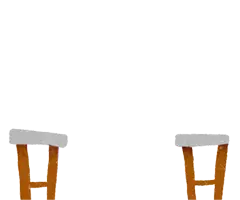Part 3AManagement of infectious diseases
Directions
92IMedical officer of health may give directions to individual posing public health risk
This section applies if a medical officer of health believes on reasonable grounds that an individual poses a public health risk.
The medical officer of health may give the individual any direction or directions listed in subsection (4) that the medical officer of health thinks are necessary to prevent or minimise the public health risk posed by the individual.
If the disease that the individual is believed to have is not a notifiable infectious disease, every direction given to the individual must have the prior approval of the Director-General.
The medical officer of health may direct the individual to—
- participate in any of the following that are conducted by a health provider:
- counselling:
- education:
- other activities related to the infectious disease:
- counselling:
- refrain from carrying out specified activities (for example, undertaking employment, using public transport, or travelling within and outside New Zealand) either absolutely or unless stated conditions are observed:
- refrain from going to specified places either absolutely or unless stated conditions are observed:
- refrain from associating with specified persons or specified classes of persons:
- take specified actions to prevent or minimise the public health risk posed by the individual:
- stay, at all times or at specified times, at a specified place of residence, subject to specified conditions:
- accept supervision by a named person or a person for the time being holding a named office, including, without limitation,—
- attending meetings arranged by that person; and
- providing that person with information on any action, occurrence, or plan that is relevant to the public health risk posed by the individual:
- attending meetings arranged by that person; and
- comply with instructions to prevent the spread of the infectious disease.
In no case may a direction require an individual to submit to compulsory treatment.
Subsection (7) applies if a direction requires an individual to refrain from carrying out a specified activity either absolutely or unless stated conditions are observed and a medical officer of health believes on reasonable grounds that the persons responsible for the activity need to be informed in order to prevent or minimise the public health risk posed by the individual.
The medical officer of health may contact any person who occupies a position of responsibility in relation to the activity and tell that person about 1 or more of the following matters:
- the direction:
- the public health risk posed by the individual’s engagement in the activity:
- ways of minimising that public health risk.
If the Director-General so requires, the medical officer of health must send him or her a copy of all or any of the directions given by the medical officer of health under this section.
Despite anything in the Privacy Act 2020, if a person requires another person to provide information under this section,—
- the person required to provide the information must comply with the requirement and be advised that the information must be provided for the effective management of infectious diseases; and
- nothing in this section limits the right of an individual to access or disclose information about him or her under that Act or any other Act.
Notes
- Section 92I: replaced, on , by section 11 of the Health (Protection) Amendment Act 2016 (2016 No 35).
- Section 92I(9): amended, on , by section 217 of the Privacy Act 2020 (2020 No 31).


